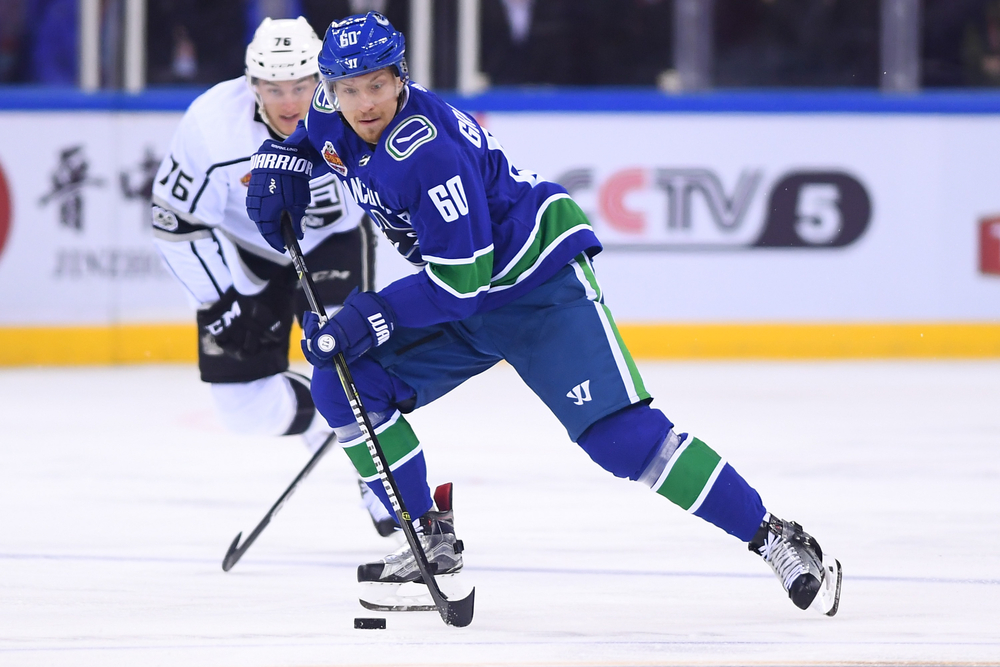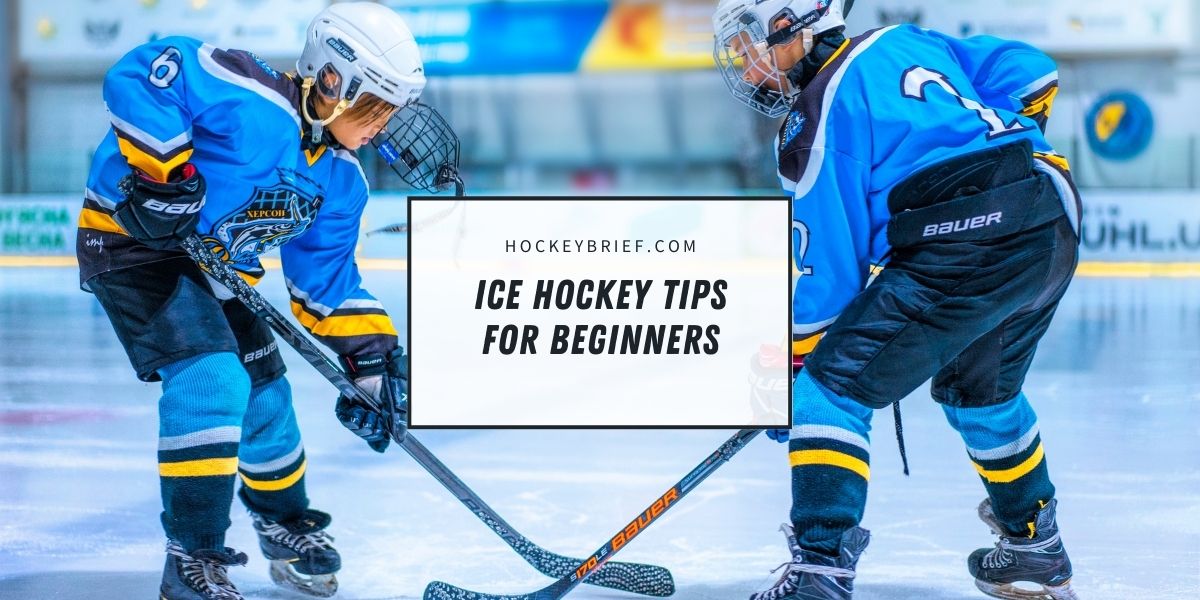If you are new to the game of ice hockey, learning some new tips will be helpful in your progression as a player. This article will show you 11 great tips for beginner ice hockey players.
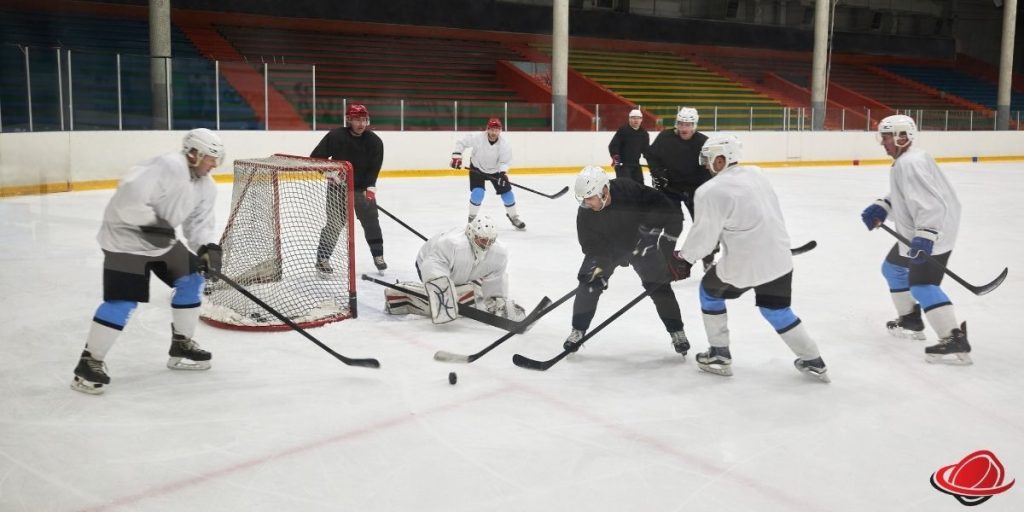
Perhaps the best advice I ever heard for ice hockey players was from the greatest player to ever play the game.
The “Great One” Wayne Gretzky once said:
“Good players play where the puck is, great players play where the puck is gonna be.”
This makes perfect sense as Wayne Gretzky was the master of this concept. He had a natural instinct of knowing where the puck is going to end up. He could make pass plays that no one else could.
He was simply a step above most other players and perfected the game of ice hockey.
As a beginner, you will need some great tips and advice to help you with your game.
You might not learn every great tip from players like Wayne Gretzky, but if you are just getting started, the following tips will be helpful.
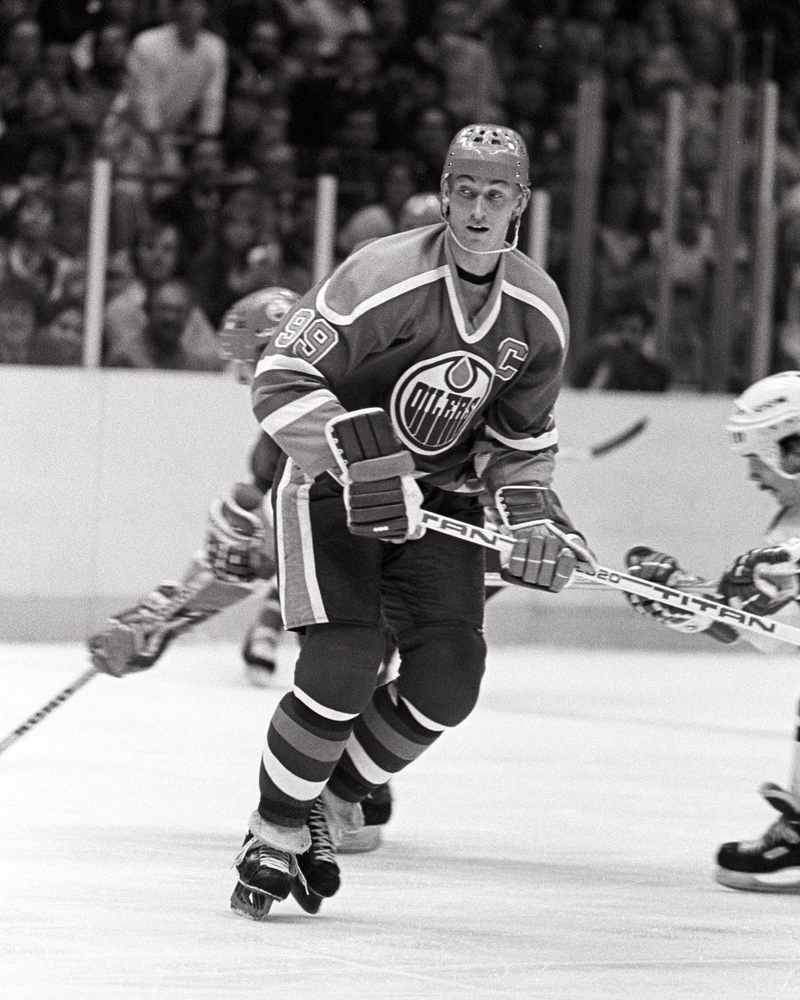
Understand the ice hockey terms
You most likely have noticed that the game of ice hockey is filled with new words and lingo that you need to learn.
It’s important to understand what these terms mean before you begin to play.
For example, the following is a list of ice hockey terms you should understand. There are many others but this list will get you started.
Assist: An assist is given to a player who passed the puck to the goal scorer on the ice. This is normally given to only 1 or 2 players.
Blueliner: This word is often used to describe the players on defence.
Crease: An area of the goal that forms a semi-circle in front of the net.
Drop pass: This term describes passing the puck to another player behind you.
Hat-trick: When a player scores 3 goals in the same game, they will be given a hat-trick.
Netminder: This term is often used to describe the goalie on the ice.
Neutral zone: This refers to the area of the ice in between the 2 blue lines.
Power play: If one team takes a penalty, the other team will be awarded a power play and will have an extra player on the ice.
Sin-bin: This is the penalty box.
Trapper: The goalie will use a catching glove sometimes called a trapper.
Buy the right-sized equipment
Buying the proper gear ahead of time is important and playing the game with equipment that doesn’t fit properly will affect the way you play.
Gear that is too big or too small will be uncomfortable and can prevent you from performing on the ice. It is also a safety concern as the wrong sized gear won’t provide you with the proper protection that is needed and you could end up getting hurt.
You may want to consider buying used gear or borrowing gear from a friend when starting out as buying all new gear is expensive and not needed in the beginning.
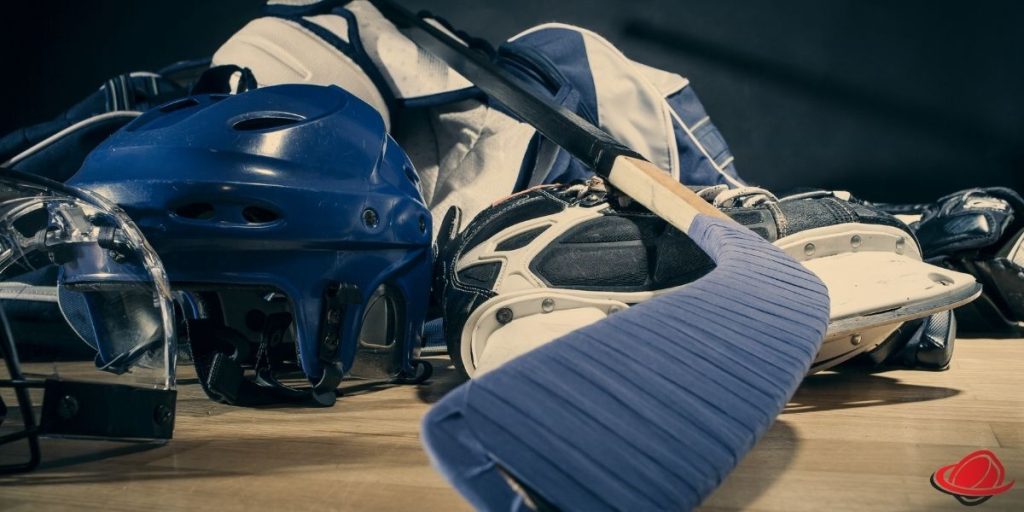
Show up to the rink early
As a beginner, you will need extra time to get ready for a game or practice. The first few times you lace up the skates, tape your stick, and put on new gear, it will take extra time.
You will also need time to get used to the arena and your surroundings. So showing up to the rink early will be helpful and prevent you from rushing.
“Good players play where the puck is, great players play where the puck is gonna be.”
Wayne Gretzky
Learn basic skills away from the rink
To help enhance your performance on the ice, there are several things that you can do away from the rink to learn and practice your skills.
Things like basic puck handling, shooting, and passing, can all be practiced at home or at a practice facility. Exercise and strength training can be done with various exercises at home.
Many of the basic skills to play ice hockey can also be used to play ball hockey. You can play with friends or join an indoor league to help develop and practice basic skills.
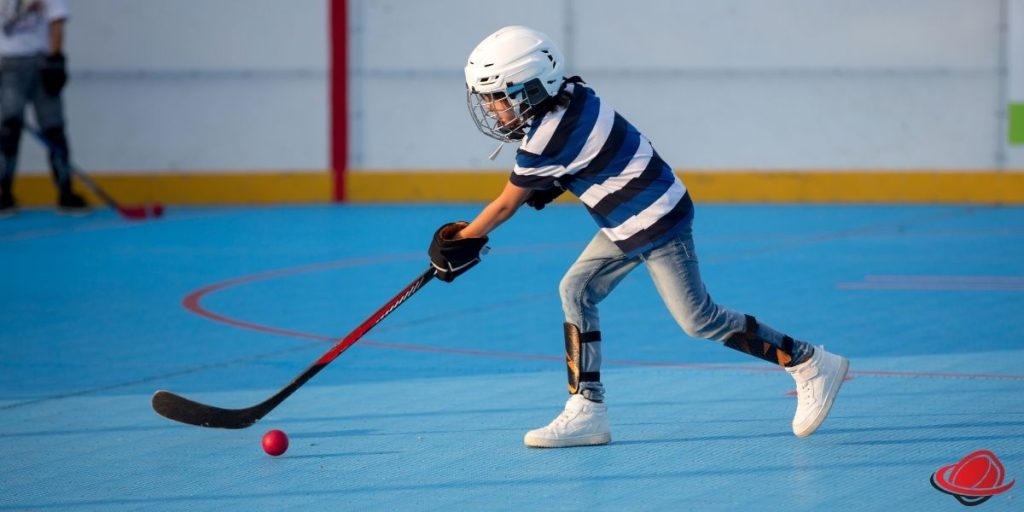
Learn the rules of the game before playing
There are many rules of the game of ice hockey. Pro hockey leagues like the NHL have a complete book dedicated to the rules of the game. Professional hockey players are expected to know these rules.
As a beginner, you might not know all the rules right away, but you will learn them over time. But you should read up on the basic and most important rules of the game before playing. It will help you on the ice and prevent mistakes from being made.
Although mistakes are inevitable and you will learn from your mistakes, knowing some of the basics ahead of time will help.
Ask questions to teammates and coaches
One of the many things you will learn as a beginner is that your teammates and coaches are there to help and answer any questions you may have.
Don’t be afraid to ask questions. If you are a new player on the team, remember that everyone was a beginner at one time. If you are unsure of something, just ask.
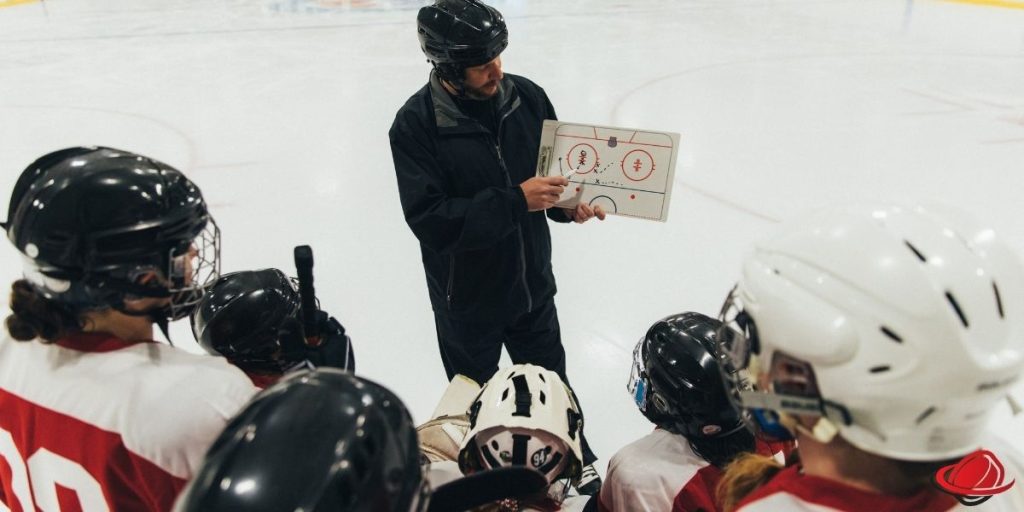
Learn from your mistakes
As mentioned above, mistakes are going to happen. Don’t be afraid to make mistakes as the best way to learn the game is through your mistakes.
Of course, it’s important to learn all of the rules and practice as much as you can to avoid making some mistakes but don’t let it bother you.
Making mistakes is normal and use them as a learning tool.
Learn your position
There are normally 5 players on the ice at a given time and each player has a role to play. It’s important that you learn your position and know what you should and shouldn’t do.
For example, an ice hockey rink can be divided into sections and each player will adjust their position on the ice accordingly.
The goaltender will play at each end of the ice in the net.
The wingers and centerman will generally stay in their lane. Think of the ice being divided into 3 lanes. The wingers will stay to the outer 2 lanes with the centerman in the center.
So to avoid being out of position on the ice, learn your position well and more times than not, you will be at the right place at the right time.
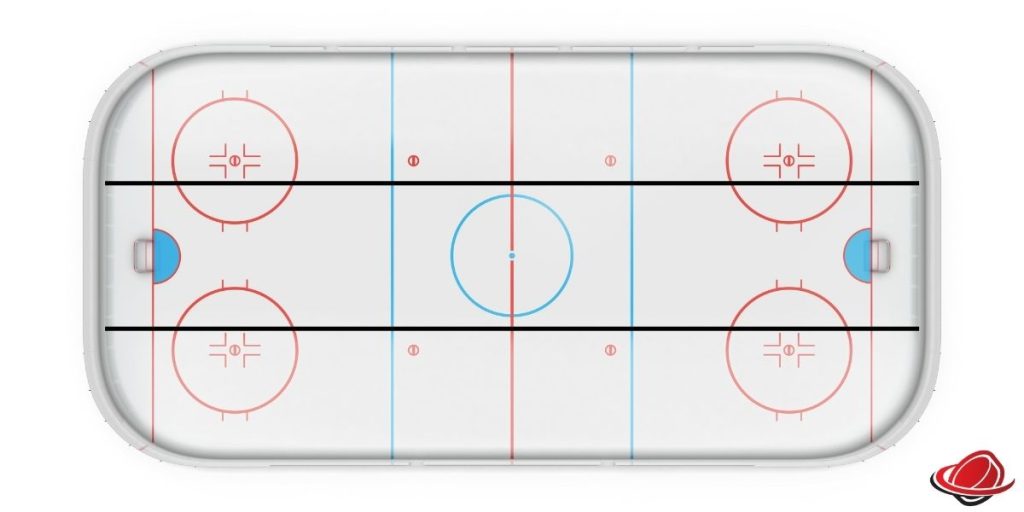
Listen to your teammates on the ice
The game of ice hockey is very vocal and there will be plenty of chatter on the ice. Players will talk back and forth and give helpful advice.
It’s common for a goaltender to talk to the other players on the ice, sometimes when guiding a player when retrieving the puck behind the net.
Being vocal on the ice is a good thing and will be helpful for you and your teammates.
Keep your head up
One of the best tips for ice hockey players is to keep your head up. You will hear this saying quite often.
Ice hockey is a contact sport and depending on your level of play, you may be involved in body checking. You need to learn from day one to keep your head up on the ice.
You should not be looking down at the ice when stick handling with the puck or at other times. You will need to learn how to play the game with your head up at all times.
Being alert and aware of your surroundings is important when body contact is in play. Keeping your head up will prevent unexpected injuries if you were to be body checked from an opposing player.
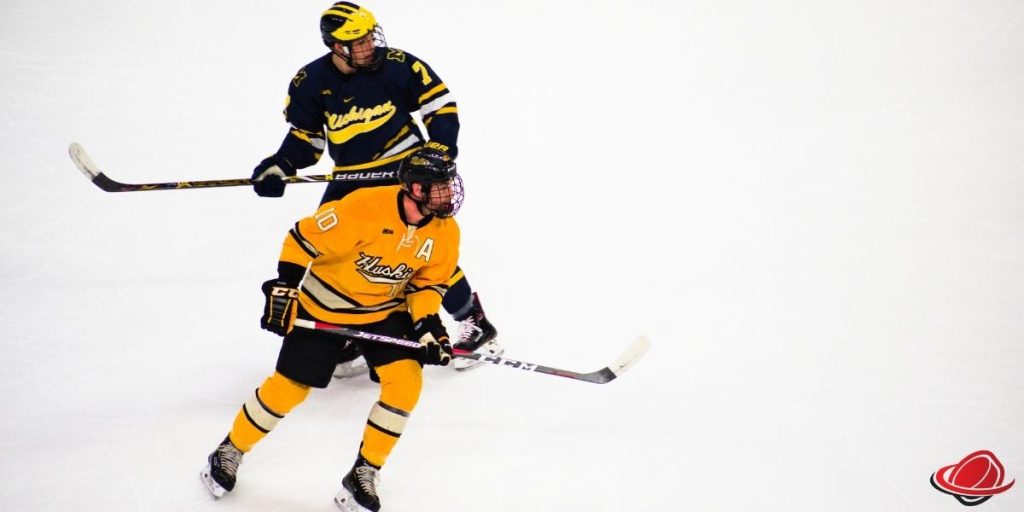
Watch and learn from other players
If you are a new player now or planning to start playing, one of the best things you can do is learn from other players.
If you have teammates that have been playing for a while you can learn from them.
Spending time watching the game at home or on video can also be very helpful. If you are a hockey fan, watching the professional players will allow you to pick up some great tips.
Even though Wayne Gretzky is not playing today, there are many other players to learn from.
Most people will have a favorite hockey player in the NHL and can learn from them while developing some of their habits on the ice.
